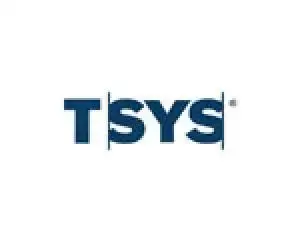
Get a Quote
Get a Quote and Find Services to Fit Your Needs 50000+ Satisfied Clients
5000+ Licenses & Registration
15 Branches across India
75 Years + Combined experience
Satisfied Clients
Services
Years Combined Experience
Get Started!

























TDS full form is Tax Deducted at Source. It is a tax that the Indian Government levies when a transaction takes place. TDS is basically a deduction made by the deductor while making a payment or crediting the amount to the deductee’s account, whichever comes first. It is deducted regardless of the mode of payment, whether it is cash, cheque, or credit, and is linked to the PAN of both the deductor and the deductee.
If you want to file your online TDS returns accurately, and in a timely manner, connect with Registrationwala for professional guidance and support. Our TDS return filing online services will help you ensure compliance and avoid penalties.
TDS Return refers to the quarterly statement/summary of all TDS-related transactions made during the specific quarter. This return comprises details of the TDS that the deductor collects and deposits with the Income Tax Authority.
A TDS return’s statement includes essential details, such as the PAN of the deductor and deductee, information about the TDS paid, and challan details.
Employers and organizations that possess a TAN (Tax Deduction and Collection Account Number) must file TDS returns as an obligation. This obligation extends to individuals subject to audit under Section 44AB of ITA 1961, and those in government/corporate positions who are expected to file TDS returns online quarterly.
Numerous organizations, including individuals, partnerships, businesses, local governments, Hindu Undivided Families (HUFs), corporations, and other associations, are qualified to act as deductors and make online TDS deposits. To avoid legal complications, the TDS must be deposited using the appropriate forms before the TDS-return filing deadline.
Timely filing of your TDS returns comes with several advantages including the following:
Compliance with IT regulations: You must timely file your TDS returns as it is a legal requirement under the Income Tax Act of 1961. Non-compliance with such deeds can invite legal and financial penalties for the Taxpayers.
IT Department releases quick refunds on TDS: The Taxpayer can seek quick refunds from the IT Department as they process refunds faster for taxpayers who timely file their TDS returns.
Beneficial in Record Keeping: Every TDS return’s record is served for the paid taxes from the deducted TDS. Such maintenance can come in handy for future references, such as the ITR filing.
Impart Transparency to Fin-Transactions: Filing e-TDS returns imparts transparency to the financial transactions procedure by dispensing information on the deducted TDS deposited by the Deductor.
Claiming Tax Credits to reduce Tax Liability: Taxpayers must file their TDS e-returns to reduce their tax liability. They can earn tax credits for the deducted TDS by any of the following: (i) Taxpayer’s Employer (ii) Other Authorized Deductors.
Credit Verification through e-TDS filing: Upon tax filing, taxpayers can verify the credibility of the deducted TDS by their employer credited to their Permanent Account Number.
Saves from Penalties: Timely filing of TDS returns aids taxpayers in avoiding monetary penalties for late or non-filing tax returns.
Some earnings and payments that attract Tax Deducted at Source are as follows:
Salary
Interest earned from banks
Rent payments
Commission and brokerage
Property sale
Insurance commissions
Payment concerning the National saving scheme
Dividend income
Contractor payments
Professional fees or technical service
Income on securities
Income from winning lotteries and puzzles
Income from winning horseraces
There are different types of TDS forms for filing TDS returns. Each form has a different purpose. The table below outlines the important forms for TDS-return filing:
|
TDS Form |
Frequency |
Description |
|
Form 24Q |
Quarterly |
It is the quarterly statement for TDS from salaries. |
|
Form 26Q |
Quarterly |
Form 26Q TDS is a statement of tax deducted at source on non-salaried income. |
|
Form 27Q |
Quarterly |
It is a certificate of TDS from interest, dividend, or any other sum payments to non-residents and foreign companies. |
|
Form 27EQ |
Quarterly |
This document is a quarterly statement of collection of tax at source |
While paying salary to an employee, the employer deducts the TDS under Section 192 of the Income Tax Act 1961. Every quarter, an employer is required to submit the Salary TDS returns on Form 24Q. This form includes information on the salary paid to employees and the TDS deducted from the payment.
Form 26Q is used to report TDS details on payments other than salaries. This form includes the total amount paid during a specific quarter and the TDS amount deducted. It must be filed every quarter.
Form 27Q is a TDS statement that provides details of TDS on payments other than salaries made to Non-Resident Indians (NRIs) and foreign nationals. It must be submitted every quarter or before the online TDS return filing due date. The form includes information about the payments made and the TDS deducted by the payer on those payments to NRIs.
Form 27EQ is a TDS form containing all details about tax that is collected at source. This form must be filed every quarter as per Section 206C of ITA 1961. Both corporate and government collectors and deductors must submit this form.
Filing the appropriate form before the due date is essential to ensure legal compliance.
TDS return filing due dates are as follows:
|
Quarter |
Due Date |
|
Quarter I |
31st July |
|
Quarter II |
31st October |
|
Quarter III |
31st Jan |
|
Quarter IV |
31st May |
Following are the documents we need while filing e-TDS return in India:
The Identification proofs of the directors/person/partners
TAN (Tax Deduction and Collection Account Number)
The PAN card of the business entity and the directors/person/partners
Financial Statements required
Invoices
Receipts of your winnings (If applicable)
TDS payment challan details
Documents pertaining to auditing services
One must file TDS return online in a timely manner to ensure compliance with tax regulations and avoid penalties and legal repercussions. To understand how a e-TDS return filing process takes place, read the steps we’ve explained below:
Step 1: Prepare the e-TDS return using the prescribed file format available on Protean TINPAN.
Step 2: Afterwards, create the e-TDS return in ASCII text format with a .txt extension using Protean's Return Preparation Utility (RPU) or any compatible software.
Step 3: Now, you must validate the prepared file using the File Validation Utility (FVU) provided by Protean.
Step 4: If any errors are detected, then you must correct them based on the FVU report and re-validate the file.
Step 5: Submit the validated .fvu file at a TIN-FC or upload it on the Income Tax e-Filing portal.
Following a step-by-step guide may seem pretty straightforward. However, one should keep in mind that even small errors can lead to penalties or rejection. This is where Registrationwala’s expert guidance can make a difference for you.
If a person fails to file the TDS statement within the due date, the Assessing Officer may impose a penalty ranging from a minimum of Rs 10,000 to a maximum of Rs 1,00,000. This penalty, under Section 271H, is in addition to the late filing fee under Section 234E. The penalty also applies to cases of incorrect filing of TDS returns.
With that being said, no penalty under Section 271H will be imposed for delayed filing of TDS returns if the following conditions are met:
If the tax deducted at source has been deposited with the Government.
If any applicable late filing fees and interest have been paid to the Government.
If the TDS-return is filed within 12 months from the specified due date.
We, at Registrationwala, provide end-to-end solutions to apply for TDS Return Filing. Our services include:
Collection of information and starting the process.
Creating the first compliance draft.
Reviewing the draft and making changes if necessary.
Filing your TDS-return with accurate details.
Providing you with the confirmation receipt.
Registrationwala.com is a leading legal consultancy firm providing comprehensive services relating to various tax filings. Contact us now for availing our e-TDS return filing services in India.
Q1. How often do I need to file TDS returns?
A. You need to file TDS returns quarterly.
Q2. Which form should I use to file e-TDS returns?
A. You must use Form 24Q, 26Q, 27Q, or 27EQ for filing e-TDS returns depending on the type of payment.
Q3. What is Form 26AS?
A. Form 26AS is a tax credit statement that reflects TDS, TCS, and other tax payments.
Q4. Am I eligible for TDS refund?
A. Yes. If the tax deducted at source is more than what you are liable for, you can get a Tax Deducted at Source refund.
Q5. Is a PAN card required for Tax Deducted at Source (TDS) return filing?
A. Yes, a PAN card is mandatory for filing TDS returns.
Q6. Does a Hindu Undivided Family (HUF) need to file e-TDS returns?
A. Yes, HUFs are required to file e-TDS returns if applicable.
Q7. What is the TDS limit for filing returns?
A. The TDS threshold limit varies based on the type of payment. For example, TDS limit is Rs. 30,000 for professional fees.
Q8. What are the four types of TDS returns forms?
A. There are four types of TDS returns forms: Form 24Q (for salaries), 26Q (for non-salary payments), 27Q (for non-resident payments), and 27EQ (for Tax Collected at Source).

★ ★ ★ ★ ★
I very much appreciate the fact that you guys possess tremendous knowhow of private limited company incorporation. You have exhibited professional and respectful manner towards my query and I would seriously recommend you guys to all the folks looking for outstanding business services.

★ ★ ★ ★ ★
Thanks to their support, I got my trademark successfully. I highly recommend their services for anyone needing help with their intellectual property. The person assigned to me was very cooperative and helpful.

★ ★ ★ ★ ★
Thanks to their support ragistrationwala team, I got my IP-1 license successfully and special thanks to Miss.Kanishka for your great and timing support !!!!!! I have archived my goal one step forward... Thanks for the entire team....

★ ★ ★ ★ ★
Really helped a lot in getting my both VNO licenses. Great experience working with the team and very humble team, thanks for providing the vno license on time.

★ ★ ★ ★ ★
I had a good time working with Registrationwala. Good team. I would recommend their services to others.

★ ★ ★ ★ ★
It was extremely great service of Registrationwala consulting firm, and this firm is providing the best services and worry about the client's required services along the client's satisfaction.

★ ★ ★ ★ ★
Superb Experince! Within no time the trademark registration was on.Highly professional team. I am very much Impressed with the prompt response and efficiency.Thank you.

★ ★ ★ ★ ★
We had taken ISP license from registration wala and the supporting person is very helpful to taken that license his communication and his work is satisfactory and thanks for those services

★ ★ ★ ★ ★
I sincerely appreciate your prompt support in helping me get the access license so quickly. Your professionalism and efficiency are truly commendable. Thank you for going above and beyond to assist me. Keep up the great work!